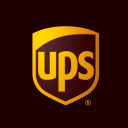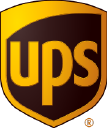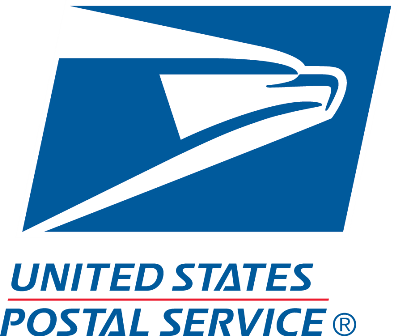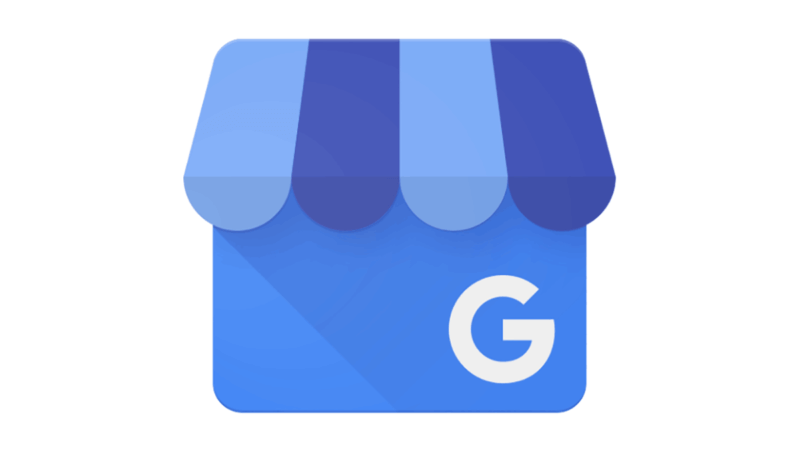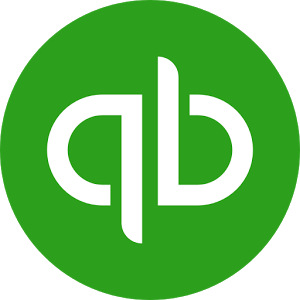How I Turned My Career As A Musician Into A $180K/Year Custom Printing Business
Hello! Who are you and what business did you start?
My name is Michael Nova and I am the Director and Founder of Nova Custom Label Printing. We offer branding and marketing solutions to businesses nationwide. We print anything a small or large business might need…
- custom label printing
- rigid or flexible packaging
- Signage, including retail store window displays
- T-shirts, jackets, hats, and custom apparel
- promotional items
- Posters, postcards, and business cards
- custom die-cut stickers cut to shape
- custom decals

We went from being a mom-and-pop small business starting in 1995 to now serving major corporations. Along the way, I learned powerful lessons of how to overcome adversity, both in business and in life.

What's your backstory and how did you come up with the idea?
I was working for an event planning firm and worked my way up to the vice president, but I was never really happy working for someone else. I always felt like a slave, even though I was being paid, I wasn’t free to express myself fully. Since I am a Sagittarius, freedom has always been imperative for me!
Having been drawn to music since I was a child. I began as a music artist in my late teens and wondered if there was a way of merging my musical skills with my business skills. I had the innate skill of organization in my music career and thought I might be able to help others. So I came up with an idea to help other musicians and artists with the business side of their music.
I had no idea how my boss would react when I told him I was quitting to start my own business, so I was surprised when he wished me well and supported my decision.
I hooked up with vendors that I was familiar with and began offering my services to people I knew, but I didn’t have an office. How was I going to get around this issue? I had to meet clients. I started meeting clients at cafés and other public locations until I got the idea to ask my previous employer if he would allow me to meet clients at his office if I paid an hourly fee. He agreed and I was off to the races. To this day, I’m grateful to Lyle Benjamin for his mentorship and support of my business idea.
Since no one wanted to deal with the gritty part of the business, it wasn’t that hard finding clients to work with initially. I came up with a whole network of vendors that were happy to work with me and offer their services to musicians. I connected them or did the work myself. My goal though was always clear. Make sure the client is always 100% satisfied. This is a value that I still hold dear today.
Make sure every penny is budgeted for and that you have enough in the bank to cover your expenses for at least six months.
It was an exciting time, being fully responsible for yourself and making a living on your own was exhilarating, but certainly not easy. I hit a dry spell where I was forced to actively go out and network. I placed flyers all around town in music shops and places where musicians congregated. It was all word-of-mouth, so it was a slow build, and during that time, I had to search the couch cushions for loose change to take public transit to meet clients and my diet consisted of lots of pasta and canned tuna fish.
Somehow, the New York Times got wind of what I was doing and wanted to interview me for an article on “the new music business”, where artists were taking their careers into their own hands, which is now a common practice. I was at the forefront of that. I was able to branch out and meet clients at recording studios and manufacturing facilities. Once again I found a mentor in Russ Paladino of Europadisk. I can’t stress enough how important it is to have mentors in your career. People like Russ and Lyle educated me about business practices and how to not only become a good salesman but offer outstanding customer service.
Over the years, I found myself gravitating over to other business industries. I was being approached by many different types of businesses to do work for them to the point that now 90% of my business is outside of the music business.
Take us through the process of designing, prototyping, and manufacturing your first product.
Well at the time, I would meet with a client and find out where they were in their career and where they wanted to get to. We would formulate a plan together to go over everything that they would need. From helping to find band members to finding a rehearsal and recording studio to finding the right producer and engineer, all of that is just the beginning.
Once we got through all of that, we needed to hook up with the right photographer to help bring out the best of what the artist had to offer. Then there was the manufacturing of the actual product - CDs or DVDs or both. And finally came the promotion, where we had to hire the right publicist and radio promoter.
All of this took a great deal of networking. I was constantly putting myself out there meeting people who could help independent music artists. Some people, unfortunately, did not cut because their reputation didn’t make me feel comfortable working with them. I felt that every person in my network needed to be a person who was trustworthy and reliable so that you artists would feel comfortable as well. From the beginning, I had a sense of making sure that everyone was happy with the work we were doing. I relied on my vendors to give 100% effort to each artist.
I think this is the most important thing you can do as an entrepreneur. Make sure that you and your vendors are doing right by your clients. I always stand behind my work. If there is any problem, I immediately contact my client and discuss it with them to make sure that they know that I’m doing everything I can to do the right thing. Integrity is something that is a priority for me.
Anyway, this was a tremendous amount of work as you could imagine, but starting any company is a tremendous amount of work. You have to dedicate yourself to working more than eight hours a day to get a business off the ground.
Sometimes clients would hire me to help them with everything and sometimes they would hire me for only a part of the project. More often than not though, my clients were financially strapped as musicians usually are, so we had to use guerrilla marketing tactics to get anything done as cheaply as possible. For instance, printing low-cost flyers and stickers to hand out at events to this day is a great low-cost marketing technique. I started doing that back then with my clients, and it helped get the word out. We also printed cost T-shirts that we could sell at shows to help artists make a few dollars. Every little bit helps!
This gave me a great education into how to save money, which I was already great at, but now even more so.
If you make everyone a VIP, they will tell other people what great service you offer. If you treat them like a number, you will develop no loyalty, and clients will only come to you once and then jump to a cheaper competitor.
When it comes to the manufacturing process, specifically for CDs, the first part of the package is naturally the music. It has to be mastered so that it sounds pristine. We would work together with a mastering studio to get the sound levels to where they need to be and remove any unnecessary sounds from the mix.
From there, we took the master CD into the manufacturing process. At the same time, we were working on the artwork for the album cover and additional information for the insert. This is where we work with the photographer to make sure that the photos represented what we wanted to convey visually. A graphic designer put together all the photos and the text into a completed package and then we had both the audio and the artwork ready to go. This was submitted to the manufacturing facility and several weeks later we had the product ready to sell!
Now the hardest part would be the promotion. Without promotion, there are no sales, so this is one of the most important parts of the entire project. It’s extremely difficult for any artist today to compete in the marketplace with so many releases coming out every single week. This is why the music industry is like buying a lottery ticket. Sometimes you can win the lottery but more often than not, you don’t. Artists today rely on music streaming where they earn pennies for streams on services such as iTunes and Spotify.
In May 2019, 1,560 full-time independent musicians were working in the United States. That is an incredible number. Everyone knows several artists trying to make it in the music industry. There are millions of them in the United States and only 1560 are full-time making a living. Just doing a quick search online for music artist failure rate, you can come up with a statistic anywhere from 90 to 99%. This is the reality of the music business.
Describe the process of launching the business.
Well, I think the first step is to get your business registered with the appropriate city and state authorities. Make sure you have a unique name that no one else is using which you can research online. Take some time looking online for ideas of business names. Think about words that you naturally are drawn to and like and how you might be able to incorporate those words into your business name.
Searching online to make sure your name is not being used elsewhere is not foolproof, but it should give you a pretty good idea if you do an exhaustive search. Search the US Patent and Trademark database as well. All of this was done before I hung my shingle out!
Next, I made sure I had enough money to get through at least six months of tough times. It’s necessary to have some kind of funds to fall back on because money will not start rolling in. It will be slow going at first.
My first website was music industry-based...

From there, as I made my transition into the business world, I started novadisc...

And finally Nova Custom Printing…

As you can see, none of these websites are what I would currently put online. They are all outdated, but at the time that worked very well for me.
It’s always very important to compare vendor pricing to make sure you’re getting the best pricing on materials. Always be on the lookout for better deals, and then you can always go back to your original vendors and ask them to match pricing if necessary.
I financed the business out of my pocket and didn’t have many startup costs initially because as I mentioned previously, I rented office space by the hour to meet clients and otherwise worked at home, and my promotional costs consisted of a lot of legwork and photocopies. I would say the initial startup cost was about $1000-2000 including state and city fees to register the business.
After some time, I began advertising in music industry trade magazines and newspapers with small ads that usually ran for less than $100 per ad. I then began advertising on Google ad words. At the time I was getting clicks for $.25 each, which is pretty unheard-of now.
The biggest lesson I learned from this was to take it slow. Take a long-term view of what you want to achieve. If you try to build the business too quickly and start hiring people to work for you before you are ready for that, you will quickly go bankrupt. Make sure every penny is budgeted for and that you have enough in the bank to cover your expenses for at least six months.
Since launch, what has worked to attract and retain customers?
The thing that we pride ourselves on is outstanding customer service. That means making sure that every client is 100% satisfied. If we make a mistake, and it’s our fault, we make up for it. We try to be as honest and transparent as possible throughout the process. I would rather tell a client the truth that might hurt rather than tell them a lie and make them feel good in the short run. We are always working hard to keep our business relationships pristine for the long term, and that’s why we’ve kept clients for decades.
As far as what has worked to attract clients, we’ve always relied on strong word-of-mouth. When you take care of people and treat them as you want to be treated yourself, word gets around. All you have to do is take a look at our reviews online. They are stellar, and we aim to keep them that way.
Regarding additional market efforts to attract new clients, SEO (search engine optimization) is crucial for your website. We’ve concentrated our efforts on making sure that our website is ranked highly in the search engines by giving the search engines what they want. That means quality content. On our blog, we explore issues that small businesses face and how to solve them.
It’s always important to try to help your clients in as many ways as possible and putting good, helpful content out there helps. Additionally, you can run online ads, try to form promotional partnerships with other businesses where you can refer businesses to each other, and put together marketing emails to send to your existing customers.
How are you doing today and what does the future look like?
We’ve been profitable from day one by keeping our overhead low and not being the cheapest option out there. There will always be competitors that offer lower prices, but the most important thing for clients is getting the best value. Clients understand that when they work with us they will get the best quality for the best price.
We do not offer online pricing because we are a custom printing company. This means that everything is made to order. All of our sales come after we have discussed the project with the client, whether that be by phone or by email. This allows us to be more personable and help the client more directly rather than just treating them like a number as most of our competition does. This is what makes us unique.
Breaking down the numbers, in this business, you want at least 25 to 50% markup on custom printed items. Sometimes it’s not possible on certain items, for instance, custom printed T-shirts. This market is so competitive that sometimes you have to take 10%.
I also find that it’s very helpful to give first-time clients great pricing where maybe you will only make 10%, but once they experience the level of service and quality you can offer, you can make up for the loss in the initial profit with repeat orders from the same client.
It’s always very important to compare vendor pricing to make sure you’re getting the best pricing on materials. Always be on the lookout for better deals, and then you can always go back to your original vendors and ask them to match pricing if necessary. Loyalty to vendors is good, but if they can’t work with you on pricing, then you need to move on. It’s just the reality of the business.
Unfortunately, this business has suffered since the pandemic began. In 2020, we lost about half of our business, and it hasn’t quite recovered yet. For this reason, if you are looking at starting a custom printing business, I would say wait until the industry recovers. Hopefully, that will be in 2022, but it’s yet to be seen.
Through starting the business, have you learned anything particularly helpful or advantageous?
The number one thing that I’ve learned is that everyone experiences adversity in business and life. Some experience it more than others, but you need to be prepared for anything.
As a music artist, I put together a music and film multimedia project entitled, X: The Human Condition. So many people in the world feel like an outsider, alienated like they don’t fit in, and I
wanted to create a unique project to help people realize that you are not alone. No matter how different and strange you might seem to others, there are always people that are like you, and it’s so important to feel that you are not alone in the world.
This is why I started the project and considered it my mission to complete it. Unfortunately, everyone that I took it to in the music industry thought it was not achievable. It was discouraging, but I felt that I was on a mission to spread this positive message and help people.
I was turned down time and time again to the point that I eventually decided to fund the project myself. This meant funding it out of my business.
With no film industry experience, I took it upon myself to see this project through to the end but became overwhelmed with the learning on the job that I had to do while self-funding the project at the same time. Although I had fantastic help from people who volunteered to help make a difference with this project, there were still huge expenses to take on, and at one point I found myself near the brink of bankruptcy.
This was an incredibly difficult time in my life and it was about to become the most difficult. The stress became so enormous that I became seriously ill and almost went blind due to illness. Everything stopped. I had to fully turn my attention to becoming well and had to borrow money from my family to keep my business afloat.
Eventually, I recovered, paid back the loan from my family, and got the business back on its feet again as I was able to release X: The Human Condition to rave reviews. After speaking with so many people who experienced similar adversities, I founded the website, RiseUpEight.org, where I began to share stories from other people who overcame setbacks.
To this day, I still run the website, still sharing stories of people overcoming challenges worldwide. People who have overcome homelessness, hunger, serious illness, even Civil War, floods, and earthquakes to become successful. What I learned from this experience is that overcoming adversity is the human condition, and through the website, we are creating a community proving that “you are not alone”, which is what I set out to do in the first place with X: The Human Condition.
Truth really can be stranger than fiction!
What platform/tools do you use for your business?
We use QuickBooks for financials which is imperative. It’s not the only tool out there, and I don’t particularly recommend it, so I would suggest checking out other options but a bookkeeping program is essential. Gmail and Thunderbird are what we use for email, and we post daily on our socials, including Facebook, Twitter and our Google business page.
We ship our custom printed products through UPS, USPS and FedEx. Occasionally we hire freelancers when needed through Upwork.
Advice for other entrepreneurs who want to get started or are just starting out?
I would say check out stories from other entrepreneurs on the website, RiseUpEight.org, where people have shared challenges that they’ve overcome in becoming successful in business. As for myself, I can share several tips:
- Understand that it’s going to take time to build a business. You may not get the money rolling in for months from now, so make sure that you have a nest egg put aside to carry you through the tough times. There will be tough times. Expect that and it will come as less of a shock when it happens. Be prepared for the worst, but work hard to try to avoid the worst from happening.
- Build the business slowly. One of the easiest ways to go bankrupt is to move too quickly. If you start hiring too many people and start advertising like crazy, spending ridiculous amounts of money, you may be wasting that money when you could be using it for something more important. Take your time and plan everything out ahead of time so that you don’t suddenly run out of money. Properly budget everything from day one.
- As I’ve mentioned previously, treat clients the way you want to be treated yourself. If you make everyone a VIP, they will tell other people what great service you offer. If you treat them like a number, you will develop no loyalty, and clients will only come to you once and then jump to a cheaper competitor. Offer tremendous value that they can’t get anywhere else.
- The website RiseUpEight.org is based on the Japanese proverb, fall seven times rise eight. That’s where we got the name. That implies that every time you fall, you will get up again. Don’t let the fall dissuade you from getting up off the ground and trying again. Some of the most successful people in life failed many times before they succeeded.
- Finally, on the other hand, realize that you can only bang your head against the wall so many times before you have to realize that a path might not be achievable. Know when to take a detour when it’s offered to you. To achieve something, it might be necessary to not go for it straight on, but find a back entrance or a side entrance. That might mean delaying gratification by taking a path that is offered to you, where you can then come back to your original goal.
Where can we go to learn more?
If you have any questions or comments, drop a comment below!

Download the report and join our email newsletter packed with business ideas and money-making opportunities, backed by real-life case studies.

Download the report and join our email newsletter packed with business ideas and money-making opportunities, backed by real-life case studies.

Download the report and join our email newsletter packed with business ideas and money-making opportunities, backed by real-life case studies.

Download the report and join our email newsletter packed with business ideas and money-making opportunities, backed by real-life case studies.

Download the report and join our email newsletter packed with business ideas and money-making opportunities, backed by real-life case studies.

Download the report and join our email newsletter packed with business ideas and money-making opportunities, backed by real-life case studies.

Download the report and join our email newsletter packed with business ideas and money-making opportunities, backed by real-life case studies.

Download the report and join our email newsletter packed with business ideas and money-making opportunities, backed by real-life case studies.

